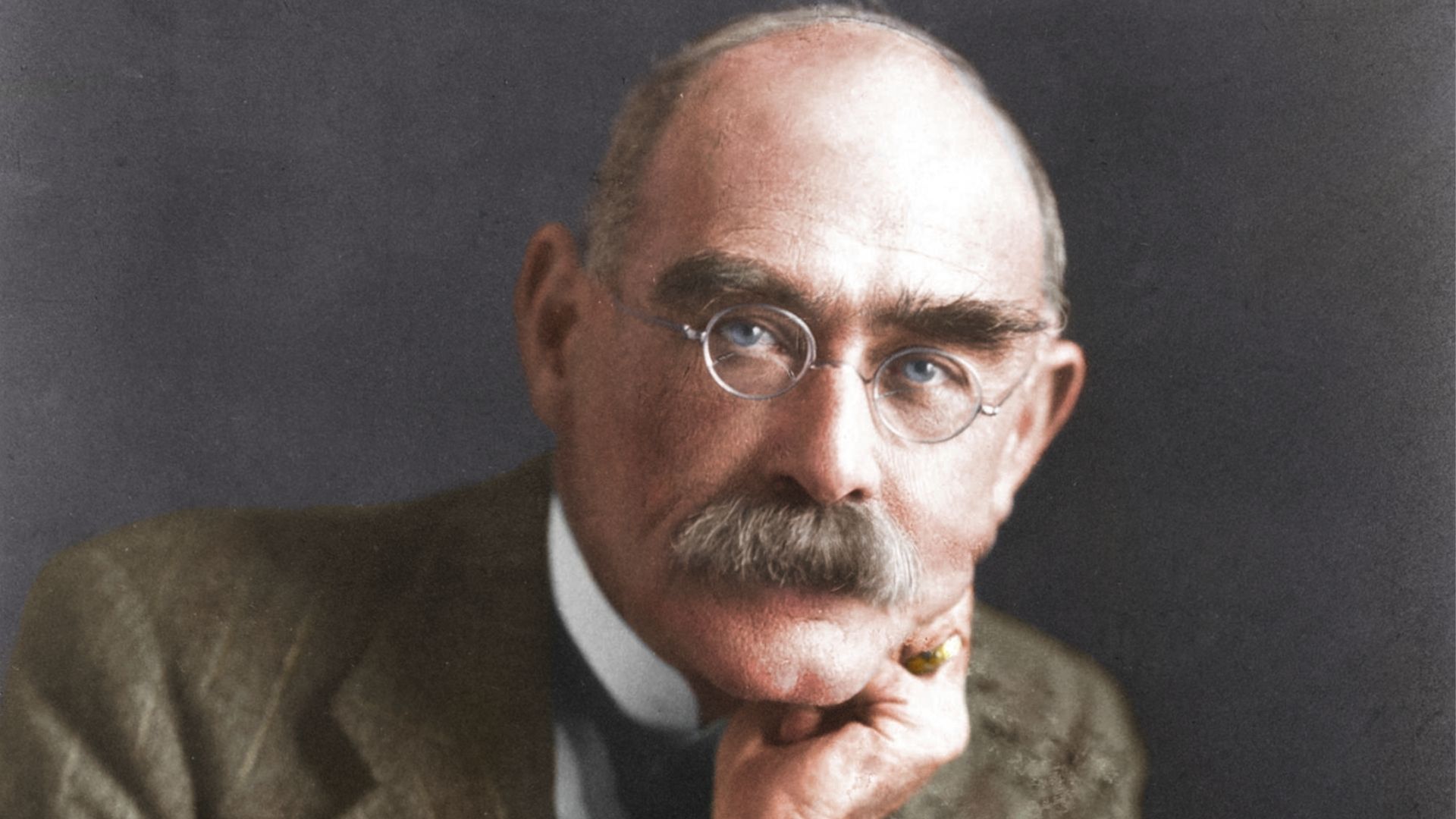A Code Of Morals Poem by Rudyard Kipling
A Code Of Morals
Now Jones had left his new-wed bride to keep his house in order,
And hied away to the Hurrum Hills above the Afghan border,
To sit on a rock with a heliograph; but ere he left he taught
His wife the working of the Code that sets the miles at naught.
And Love had made him very sage, as Nature made her fair;
So Cupid and Apollo linked , per heliograph, the pair.
At dawn, across the Hurrum Hills, he flashed her counsel wise --
At e'en, the dying sunset bore her busband's homilies.
He warned her 'gainst seductive youths in scarlet clad and gold,
As much as 'gainst the blandishments paternal of the old;
But kept his gravest warnings for (hereby the ditty hangs)
That snowy-haired Lothario, Lieutenant-General Bangs.
'Twas General Bangs, with Aide and Staff, who tittupped on the way,
When they beheld a heliograph tempestuously at play.
They thought of Border risings, and of stations sacked and burnt --
So stopped to take the message down -- and this is whay they learnt --
"Dash dot dot, dot, dot dash, dot dash dot" twice. The General swore.
"Was ever General Officer addressed as 'dear' before?
"'My Love,' i' faith! 'My Duck,' Gadzooks! 'My darling popsy-wop!'
"Spirit of great Lord Wolseley, who is on that mountaintop?"
The artless Aide-de-camp was mute; the gilded Staff were still,
As, dumb with pent-up mirth, they booked that message from the hill;
For clear as summer lightning-flare, the husband's warning ran: --
"Don't dance or ride with General Bangs -- a most immoral man."
[At dawn, across the Hurrum Hills, he flashed her counsel wise --
But, howsoever Love be blind, the world at large hath eyes.]
With damnatory dot and dash he heliographed his wife
Some interesting details of the General's private life.
The artless Aide-de-camp was mute, the shining Staff were still,
And red and ever redder grew the General's shaven gill.
And this is what he said at last (his feelings matter not): --
"I think we've tapped a private line. Hi! Threes about there! Trot!"
All honour unto Bangs, for ne'er did Jones thereafter know
By word or act official who read off that helio.
But the tale is on the Frontier, and from Michni to Mooltan
They know the worthy General as "that most immoral man."
Yes, Britain in the Victorian era was Jingoistic with a capital J. So what? That was 'political correctness' back then. Don't expect words on a page to magically change with the times in order to remain 'PC' as defined by 21st century thinking. We hear the same thing about Samuel Clemens' works. I can imagine Huck Finn referring to his friend as 'African-American Jim', or 'Jim of color'. Why not appreciate literature for literature's sake instead of trying to updat it to reflect the mores of today? Mark: excellent point about 'the world at large' having (hathing?) eyes.
The poem is written to be fun and entertaining! Whatever it meant with regard to military matters of the day will be documented in various sources. There is an unwritten code for pranks in the military and what some soldiers have dared makes incredible reading! German soldiers even dared to try to kill Hitler more than a dozen times but of course he had the luck of the devil! Rudyard Kipling told stories people never grew tired of. A man who has stood the test of time.
I see Pruchnicki is continuing his skilful impersonation of Yosemite Sam. Why he should call me adolescent because I pointed out the ridiculousness of Kipling's premise that a soldier at war would defame his general by flashing the details to all and sundry, I do not know. There are some critics whose intellect seems to desert them when they try to apply it to literature.
ONE: is a humorous piece that describes a fictional interpretation of a heliograph signal in 19th Century Afghanistan.
THREE: The title "A Code of Morals" creates the opportunity for puns in the text that follows, It may indicate the ethical advice that Jones sends to his wife ‘per heliograph': in this sense, code implies a systematically arranged set of moral laws or rules
TWO: It depicts the sadness of a newly-wed couple who are separated by fate, actually because Jones, the newly wed groom, has to go to the borders to fight for his country.
And Love had made him very sage, as Nature made her fair; So Cupid and Apollo linked, per heliograph, the pair. At dawn, across the Hurrum Hills, he flashed her counsel wise - At e'en, the dying sunset bore her busband's homilies. A very fine poem. tony
read, read, read and read thousands time the great Rudyard Kipling
This poem has not been translated into any other language yet.
I would like to translate this poem
I agree with those who see this simply as a funny personal snafu that is being described by Kipling. But is also has a good natured cautionary message for modern ears as well and that is: be careful what you put on the internet - Facebook or otherwise - because the 'world at large hath eyes'.